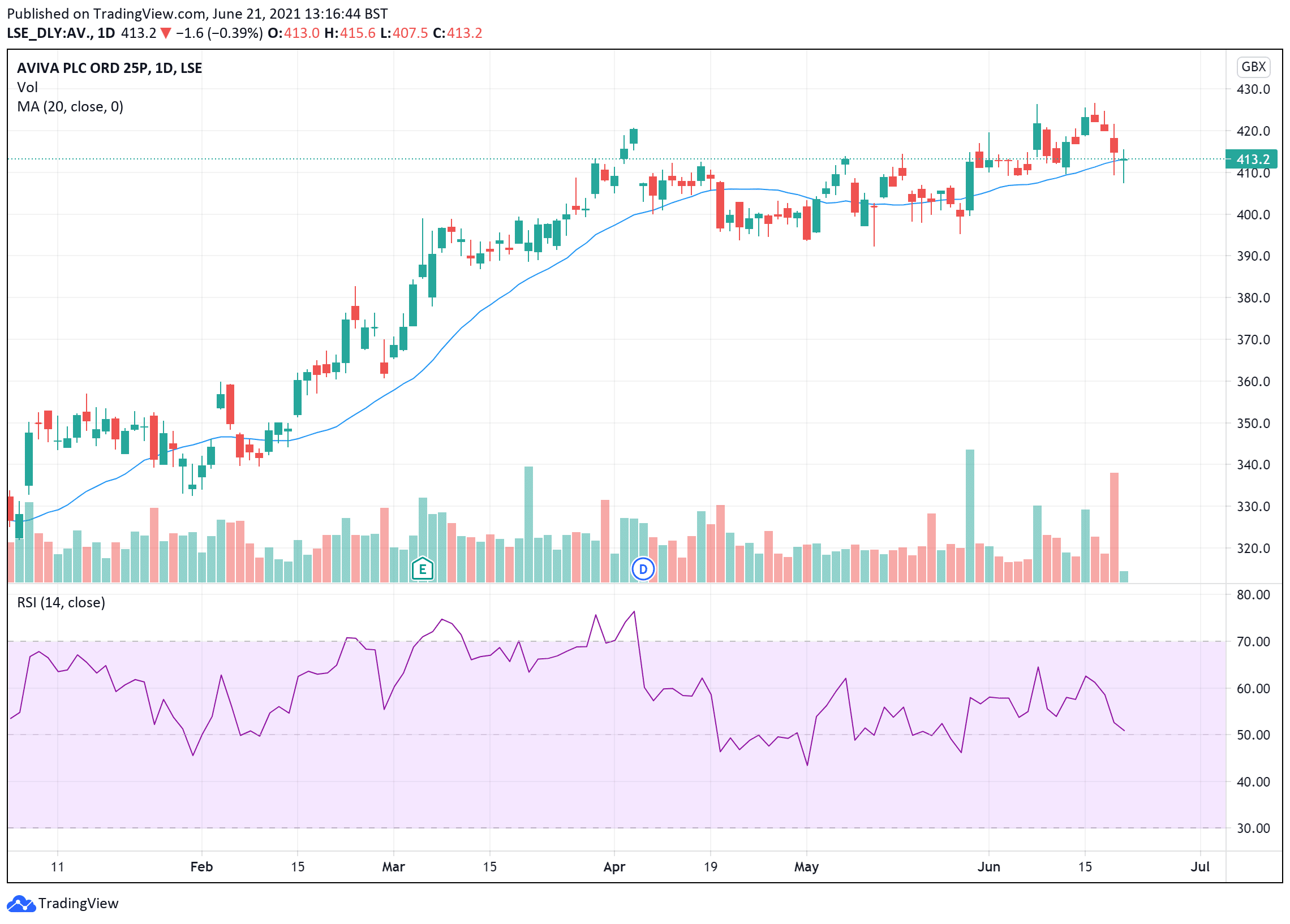Aviva Share Price Prediction June 2021 – Time to Buy Aviva Shares?
Please note that we are not authorised to provide any investment advice. The content on this page is for information purposes only.
Aviva Cor. is one of the largest insurance companies in Britain. The company has had a bit of a roller coaster ride in 2021, With Aviva shares fighting to get back to the highs they enjoyed a few years back.
Following the market decimation that came in 2020, stocks worldwide have been doing their best to shake off the rust and resume profitability.
Aviva has been one of such companies. However, the year hasn’t been all too rosy, especially since questions about the company’s management style have come to light.
Aviva has also seen some lagging performance from Aviva Investors, its asset management subsidiary. All of these have made investors skeptical about buying Aviva shares as the company now seems to be biting off more than it can chew.
Going into the penultimate week of June, Aviva is trading down 1.3 percent on Monday, and up 3.24 percent in the past month.
If you’re wondering whether the time is right to buy Aviva shares, we have a forecast and analysis of the company to help you make the right decisions.
Aviva Shares UK – What Are the Analysts Saying?

Aviva reported its Q1 results last month, showing that ew life business premiums were flat year on year. The company added that new business premiums stood at £8.3 billion, while general gross insurance written premiums jumped 4 percent to £2 billion.
The company attributed many of its wins to strengths in its new businesses and a favorable rate environment in commercial lines.
Aviva also saw a record in new money into savings and retirement products during Q1, with total inflows up over 25 percent to £1.5 billion and £1.4 billion respectively to its workplace and IFA platforms.
At the same time, new inflows to its savings and retirement products increased by over 31 percent.
Buy Aviva PLC Shares Now with 0% Commission >
67% of all retail investor accounts lose money when trading CFDs with this provider.
All in all, Aviva’s combined operations ratio – a metric that measures underwriting profitability – jumps to 90.6 percent compared with 118.7 percent a year earlier.
This was attributed to a stronger underwriting performance, benign weather conditions, and a sharp drop in coronavirus-related claims. With motorists driving less during the lockdowns, accident claims reduced drastically as well.
Aviva reported £0.13 in dividends for 2020 – a 36.84 percent jump year-over-year. Analysts at the Financial Times expect that dividends will jump by 75.38 percent to £0.23. Financial Times analysts have also put a median share price target of £450 for the company this year, with a high estimate of £500 and a low estimate of £400.
Aviva Shares UK – Technical and Fundamental Analysis
As explained earlier, many companies are looking to break free from 2020’s drought and trend upwards. Aviva shares have done pretty well so far in 2021, trading up 23 percent since the year began.
The technicals are pretty strong, with a 50.87 relative strength index (RSI) showing that Aviva shares are well below the overbought levels. With a current price of £413.2, AV.L is trading just below its 20-day moving average (MA) of £413.4.
The smart money will bet on the company breaking through that trend before the day is over, thus setting it up for bigger price gains moving forward.
As for the company’s fundamentals, there are mixed signals. Earlier this month, the company got under pressure from Cevian Capital – an activity investor – to give back £5 billion to shareholders over the next year.
In a statement, Christer Gardell, Cevian’s managing partner, criticized Aviva’s partnership over the past few years and claimed that high costs and bad strategic decisions had held the company back.
He pointed out that Aviva should have more than £8 per share in value within three years, while also doubling its dividends.
Cevian also believes that Aviva can cut at least £500 million in unnecessary costs by 2023 – raising the company’s estimates of £300 million by 2022. With ownership of 5 percent of Aviva shares, Cevian is now the insurance giant’s largest shareholder. It is expected to help steer the company in the right direction going forward.
Aviva is also moving quickly to rejigger its Aviva Capital subsidiary.
The asset management arm has been unable to scale as promised, and its contribution to the conglomerate’s profits remains minuscule. The company is now cutting back on Aviva Capital, with the latter’s chief David Cummings losing his job.
With Cevian pushing for cost reductions, it seems that Aviva Capital’s days are numbered. However, this decision could benefit the entire company in the long run.
Buy Aviva PLC Shares Now with 0% Commission >
67% of all retail investor accounts lose money when trading CFDs with this provider.




